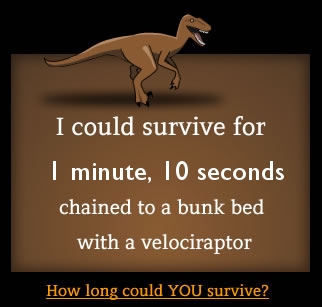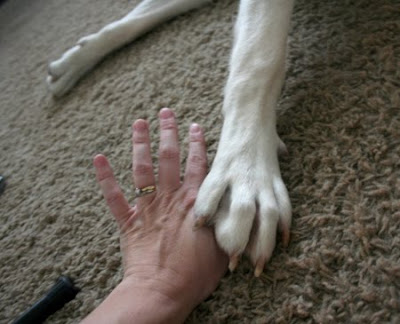BrightStar blogged recently about wanting to re-embrace her faith. She wrote, "the very idea of trying and trying and not finding what I am seeking scares me."
Her short post resonated with me. I haven't written much here about faith because it's a hugely difficult thing for me to talk about. It's like several skeins of yarn all tangled together, each strand representing some years-long line of thought.
Among the strands:
- My early experiences with religion. When I was a small child, my parents attended with some regularity a Presbyterian church whose Sunday school teachings were largely inscrutable to me. When I was in the middle of elementary school, we began attending a local Congregational (later UCC) church. The Christian ed there made more sense to me, but the theology still didn't jibe with my understanding of the world. So in junior high I stopped attending church, and I considered myself an atheist. Maybe my conception of God was too narrow, but I just couldn't see the workings of a divine being in the world.
- Politics. The loudest Christian voices in this country are absolutely repellent to me. The homophobia in particular is unconscionable. (Note: I know there are plenty of queer Christians and queer allies among Christians. I'm talking here about the usual suspects we see in the mainstream media, OK?)
- My own long-term commitment to pacifism, plus a frustration with the American conflation of god with country and the resulting unthinking patriotism and jingoism.
And yet, despite my distaste for religion and my lack of belief in anything resembling the Christian god, I have retained some confidence in what might be called
the soul--by which I mean not something that goes to heaven or hell once we shuffle off this mortal coil, but rather something profoundly human that at the same time transcends our everyday humanity--the essence that drives the best art, makes love possible, and allows us to empathize with people very unlike ourselves.
I am, it appears, an atheist with an abiding belief in the soul.
As you might imagine, there's not a lot of room for someone with my beliefs in the religious practices, and especially the Christian denominations, most common among Americans.
And yet I feel moved at this time to write something about my search for a welcoming spiritual practice.
* * *
In the fall of 2004, I was a graduate fellow at the Smithsonian Institution, and I found housing that was affordable, safe, and within walking distance of the National Mall in the form of the Young Women's Christian Home, a (theoretically) nonsectarian residence. I learned a lot about conservative American Christianity from my dorm mates during my three months there, and I had a lot of interesting conversations about faith and politics.
Sometimes "interesting" also meant troubling. At one new friend's invitation, I attended Baptist Bible study on Wednesday nights, an experience that underscored for me the delusions of fundamentalism based on "close readings" of the Bible. Let's just say that polysemy never occurred to these folks, and questions that suggested the possibility of multiple interpretations were not exactly welcome.
On Sunday mornings, the YWCH emptied as most of the women went to church, and frankly, after all of my nodding during dinner conversations with young conservatives and listening to one particular Baptist minister persuade his flock that the second coming of Christ will look like an atomic bomb blast and seeing the congregants imagine the schadenfreude the newly raptured would feel when that day finally arrived, I needed to cleanse.
My childhood best friend was Quaker, so when I was looking for someplace to be on Sunday morning, perhaps it's not surprising that I found myself walking from the Metro station in Dupont Circle, up Connecticut Avenue toward the neighborhood of ambassadorial residences that surrounded the
Washington, D.C. Friends meetinghouse.
* * *
I had been reading a couple of books by Shelby Spong, who writes in
Why Christianity Must Change or Die, "Institutional Christianity seems fearful of inquiry, fearful of freedom, fearful of knowledge--indeed, fearful of anything except its own repetitious propaganda, which has its origins in a world that none of us any longer inhabits." This really resonated with me, as did Spong's explanation in
A New Christianity for a New World of his own beliefs. Spong is a former Episcopal bishop who, according to the first chapter of this book, is a Christian. Yet, as he writes,
I do not define God as a supernatural being. I do not believe in a deity who can help a nation win a war, intervene to cure a loved one's sickness, allow a particular athletic team to defeat its opponent, or affect the weather for anyone's benefit. I do not think it is appropriate for me to pretend that those things are possible when everything I know about the natural order of the world I inhabit proclaims they are not.
Spong writes that because he does not see God as a supernatural being, he cannot claim the divinity of Jesus, nor his virgin birth, miracles, or resurrection. He continues,
I do not believe that this Jesus founded a church or that he established an ecclesiastical hierarchy beginning with the twelve apostles and enduring to this day. I do not believe that he created sacraments as a special means of grace or that these means of grace are, or can be, somehow controlled by the church, and thus are to be presided over only by the ordained. All of these things represent to me attempts on the part of human beings to accrue power for themselves and their particular religious institution.
As I read on, and learned that Spong espouses feminist, antiracist, and queer-friendly stances on civil and human rights, I uttered an involuntary
amen.
One more bit from Spong:
The primary question I seek to raise in this book is this: Can a person claim with integrity to be a Christian and at the same time dismiss, as I have done, so much of what has traditionally defined the content of the Christian faith? Would I be wiser and more honest if I were to do what so many others in my generation have done--namely , resign from my membership in this faith-system of my forebears? . . . . In the eyes of many, both in the Christian church and in the secular society, it would. . .have represented an act of integrity. It would not, however, have been honest, nor would it have been true to my deepest convictions. My problem has never been my faith. It has always been the literal way that human beings have chosen to articulate that faith.
Dude was an Episcopal
bishop. He knows whereof he speaks, and I suspect he knows to whom he speaks, that his audience is a very large one.
I'm definitely a member of that audience. I'm open to Christian philosophies of empathy (walking a mile in another person's shoes), forgiveness and nonviolence (turn the other cheek), and deep caring for people who are unlike oneself. I don't see sufficient embrace or application of such philosophies in the many, many church services I have attended across the Christian spectrum.
So I wouldn't call myself a Christian. Maybe Christian
ish, though even that makes me uneasy because I find nauseating what passes for Christian discourse in the American political sphere.
* * *
Back in the fall of 2004, I found myself spending increasing amounts of time on
the Friends General Conference website. The overview I found there of Quaker belief was reassuring. I don't remember if the website had the same content then as it does now, but
these questions in particular interested me:
- Are you seeking haven in a world which may not be in pace with your needs?
- Do you wish to join with us to help in finding ways to implement the historic peace testimony of Friends "to oppose all wars and preparation for wars? "
- Do you wish to discover how you, as an individual, can help to create a better world?
- Do you seek a religious home, without creeds or required statements of belief?
- Do you desire to wait upon God in an expectant silence without the presence of intermediaries?
- Are you looking for meaningful spiritual community?
Aside from the primary testimonies of the Friends—simplicity, peace, integrity, community, equality, and care for the earth—perhaps what most attracts me to Friends is their willingness not to always have an answer at hand. I've found other Christians and pseudo-Christians, when asked a question they cannot answer, turn to the Bible, a book that has never really spoken to me. Friends, on the other hand, will sit with something for a while, individually and communally, listening to the wisps of God within themselves and reflecting on what they hear. I also appreciate that, at least in the strand of Quaker practice that most appeals to me, they don't have a theology of heaven or hell; instead, they focus on this life, on this world. Theirs is a faith, it seems to me, rooted in contemporary concerns and with practices that allow for dynamic engagement with the world rather than judgment of it based on static creeds.
* * *
At the moment, I have many things I'd just like to sit with in silence.
* * *
This past Sunday I attended the local unprogrammed Friends meeting. There were only nine of us in the room, which is a bit small for my taste, but we just about filled the room at the local literary center where the meeting gathers. The meeting last Sunday was a completely silent one, and afterward, instead of people shaking hands as I've seen elsewhere, we joined hands in a circle and shared our thoughts on the previous week.
I met some very interesting people, and I intend to go back, but since there weren't any other kids there, I'm not sure how I'll handle the Lucas situation. I do want to raise Lucas with Quaker values, and establish his dedication to the peace testimony--assuming he chooses to embrace it--so that if there's a time when he needs to be a conscientious objector, he'll have a long personal history to draw upon.
I haven't said anything here about Fang, but he's shown some interest in Quaker values, but I know that he and I don't always tune into the same faith wavelength, so we'll see if he joins me in my latest experimentation with faith.
I'm still uneasy writing about faith in this space, because as I said, I'm an atheist, and I don't want to mislead anyone into thinking I'm opening my heart to their particular conception of Jesus, or that I'm open to proselytizing or evangelism. I wouldn't say I feel as if there's something
missing in my life so much as I feel there's
something there that I haven't adequately addressed.
What about you? What are the things you're uncomfortable writing about? And how did you find yourself where you are in your particular faith journey?





















